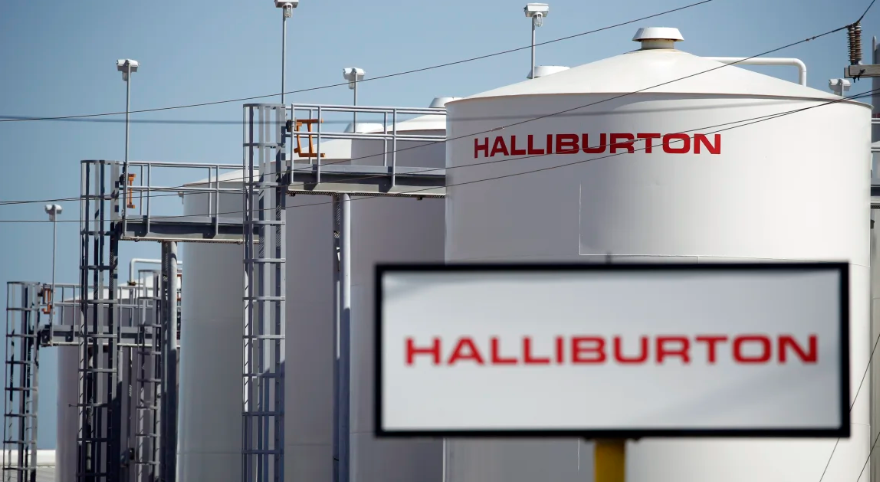
Date Issued – 26th August 2024
Oil Prices Climb Amid Middle East Tensions and Fed Rate Cut Signals
Crude oil prices have started the week on a strong note, reversing last week’s losses as escalating conflict in the Middle East raises concerns over potential supply disruptions. Meanwhile, in the U.S., the Federal Reserve hinted at a possible interest rate cut in the near future, adding further momentum to the market. By late morning in Asia, Brent crude had risen above $79 per barrel, while West Texas Intermediate (WTI) was trading above $75 per barrel.
The recent uptick in prices is also supported by a tightening global oil supply. Inventories have dropped to a two-year low, with OECD stocks particularly strained, falling 4% below the ten-year seasonal average equivalent to 120 million barrels. U.S. oil inventories have similarly been on a steady decline for several consecutive weeks. Tony Sycamore, an analyst at IG, highlighted the impact of geopolitical events, stating,
“Israel’s pre-emptive strike on Lebanon over the weekend, aimed at thwarting an imminent Hezbollah attack, should provide a strong opening for WTI crude, potentially pushing prices toward $77.50, and then $80.00.”
However, Warren Patterson, head of commodities strategy at ING, offered a more cautious perspective, noting that the market may be growing desensitized to Middle East tensions.
“These risks have been escalating for nearly a year without significantly affecting oil supply,”
Patterson remarked in a note to Bloomberg. He suggested that any price rally driven by these developments could be short-lived unless Iran becomes directly involved, which would significantly heighten supply risks.
Adding to the bullish sentiment, U.S. Federal Reserve Chairman Jerome Powell signaled last week that a rate cut could be on the horizon at the Fed’s next meeting in September. Speaking at the Kansas City Fed’s annual economic conference in Jackson Hole, Wyoming, Powell stated,
“The time has come for policy to adjust. The direction of travel is clear, and the timing and pace of rate cuts will depend on incoming data, the evolving outlook, and the balance of risks.”
These developments are setting the stage for what could be a volatile week in the oil markets, with traders closely watching both geopolitical events and economic indicators.
Russia’s Coal Reserves Secure Long-Term Supply Amid Global Market Shifts
Russia has reaffirmed its status as a key player in the global energy market, announcing that its coal reserves are sufficient to last over a century. Despite the increasing pressures from Western sanctions and a competitive global market, the country remains steadfast in its coal production and export strategies. According to Alexander Kozlov, Russia’s Minister of Natural Resources and Environment, the nation’s coal reserves stand at an impressive 273 billion metric tons, with 46.4 billion tons currently being extracted. Even with Russia’s 2023 production reaching 392 million tons, these reserves are expected to sustain the country’s coal industry for more than 100 years at current extraction rates.
This declaration comes amidst significant challenges for Russia’s coal sector. The Western sanctions imposed following the 2022 invasion of Ukraine have forced Russian coal producers to pivot their focus toward Asian markets, often selling at substantial discounts to stay competitive. However, this shift has not been without hurdles. In 2023, Russia faced stiff competition from major coal exporters such as Indonesia and Australia, whose lower prices and established market presence have put pressure on Russian coal exports.
In March, Russia’s coal exports to Asia experienced a noticeable decline, as countries in the region opted for cheaper alternatives from Indonesia, South Africa, and Australia. This trend underscores the intense price competition and the complexities of maintaining a foothold in the Asian market. Russia’s vast coal reserves present a paradox for the global energy market. On one hand, they offer a stable and potentially long-term energy supply for Asian countries seeking to diversify their energy sources. On the other hand, the global coal market dynamics shaped by fierce competition and a growing shift towards renewable energy raise questions about the future of coal as a cornerstone of Russia’s energy exports.
While coal continues to be a significant component of Russia’s energy strategy, the evolving global energy landscape and the competitive pressures from other coal-producing nations pose challenges to Russia’s dominance in the sector. As the world increasingly gravitates toward cleaner energy solutions, the long-term viability of coal as a key export commodity for Russia remains uncertain.

Halliburton Hit by Cyberattack: Operations Disrupted and Response Underway
Halliburton, one of the world’s largest oilfield services companies, has been targeted by a cyberattack, according to a report from Reuters citing an unnamed source. The cyberattack reportedly affected operations at Halliburton’s north Houston campus as well as some of its global connectivity networks. In a statement to the media, a company spokesperson confirmed that they were aware of an issue impacting certain systems and were actively working to assess and mitigate the situation. “We have activated our pre-planned response plan and are working internally and with leading experts to remediate the issue,” the spokesperson said.
While Halliburton has not officially confirmed that the issue is the result of a cyberattack, reports from Cybernews suggest that the attack may have been cloud-based. The company has remained tight-lipped about the specific nature and extent of the disruption. Energy companies like Halliburton are increasingly attractive targets for cybercriminals due to the strategic importance of the infrastructure they operate. This incident brings back memories of the 2021 cyberattack on the Colonial Pipeline, the largest fuel pipeline in the United States, which resulted in widespread panic, fuel shortages along the East Coast, and a significant ransom payment of $5 million to the attackers.
The Halliburton incident highlights ongoing vulnerabilities in the energy sector. “Critical infrastructure operators in the United States get to decide how well they do or do not employ cybersecurity controls,” said Eric Noonan, CEO of cybersecurity firm CyberSheath, in comments to CNN. He warned that the current state of cybersecurity in critical infrastructure cannot continue without posing significant risks to the American public. As the energy landscape diversifies with the integration of renewable sources and electric vehicles, the cybersecurity threats extend beyond traditional oil and gas infrastructure. Wind and solar farms, as well as electric vehicles and charging stations, are also vulnerable to cyberattacks, underscoring the need for robust cybersecurity measures across the entire energy spectrum. Halliburton’s response to this cyberattack will be closely watched, as it may set a precedent for how other energy companies address similar threats in the future.
KazMunayGas Remains Unaffected by New OPEC+ Output Reduction Plans
Kazakhstan recently announced a significant update to its oil production compensation plan in response to overproduction in July, signaling its commitment to the OPEC+ agreement. However, Kazakhstan’s National Oil Company, KazMunayGas, has yet to receive any directives to reduce its output in line with this new compensation strategy, according to a report by Interfax on Friday. This development highlights a persistent disconnect between Kazakhstan’s public commitment to the OPEC+ framework and its actual production practices. Despite Kazakhstan’s frequent declarations of its dedication to the OPEC+ agreement, the country has consistently struggled to meet its assigned production quotas. The updated compensation plan, which Kazakhstan submitted to OPEC on Thursday, is an attempt to align its oil production with the agreed-upon targets and to make amends for exceeding its production limits earlier this year.
Kazakhstan has been under scrutiny from the OPEC Secretariat, alongside other nations like Iran and Russia, for consistently exceeding production limits during the first half of 2024. The new compensation plan is part of a broader strategy by Kazakhstan to maintain its credibility within the OPEC+ alliance. This plan includes significant reductions in production through September 2025, aiming to offset the excess volumes produced earlier in the year. In addition to the compensation plan, Kazakhstan’s Agency for the Protection and Development of Competition has proposed adjustments to market controls and an increase in the maximum prices for petroleum products. These measures are intended to stabilize the market and ensure fair pricing as the country navigates its obligations under the OPEC+ framework. Kazakhstan’s production ceiling is set at 1.468 million barrels per day (bpd), but the country exceeded this limit by approximately 70,000 bpd in June and continued to overproduce in July. The revised compensation plan calls for a cumulative reduction of nearly 700,000 bpd, a significant step to bring production back in line with OPEC+ targets.
This announcement comes at a crucial time as the global oil market grapples with fluctuating demand and supply challenges. While Kazakhstan’s intentions to comply with OPEC+ agreements are clear, the absence of immediate action from KazMunayGas raises questions about the effectiveness of these commitments. The coming months will be critical in determining whether Kazakhstan can successfully align its production practices with its stated goals and maintain its standing within the global oil market.
UK Electricity Bills to Jump 10% Amid Rising Wholesale Costs
Household electricity bills in the UK are set to rise by 10% this October as the energy regulator Ofgem increases the energy price cap, responding to higher wholesale electricity costs faced by suppliers. The adjustment will see the average annual electricity bill for British households increase to approximately £1,840 (around $2,250) from £1,675 (around $2,055), marking the first cap hike since January. Jonathan Brearley, CEO of Ofgem, acknowledged the difficulties this increase will pose for many families. “We know that this rise in the price cap is going to be extremely difficult for many households,” Brearley said, urging those struggling to pay their bills to explore all available benefits, including pension credits, and to reach out to their energy providers for additional support.
The price cap revision has sparked widespread concern, particularly as the colder months approach. Earlier in the month, a consumer advocacy organization, Citizens Advice, warned that as many as a quarter of British households might be forced to turn off their heating and hot water this winter due to the revised price cap. The anticipated hike was initially estimated at 9%, but the actual increase has surpassed those expectations.
The impact of rising electricity costs is expected to hit households with children and low-income families the hardest. According to a Citizens Advice survey, 31% of households with children and 39% of low-income households expressed significant concern about affording electricity this winter. The survey also revealed that 48% of respondents plan to reduce or entirely turn off their heating to manage financially, while 34% foresee difficulties in affording essentials such as food, mortgage payments, or childcare due to the increased energy costs.
In a related development, the Labour government has announced the cancellation of approximately £1.6 billion ($2 billion) in fuel subsidy payments for more affluent pensioners. This decision is part of an effort to address a £23-billion ($29-billion) shortfall in the national budget. The upcoming price cap increase and the broader economic pressures it reflects highlight the ongoing challenges facing UK households as energy prices continue to rise, placing a growing strain on family finances across the country.
Disclaimer: This article provides financial insights and developments for informational purposes only. It does not constitute financial advice or recommendations for investment decisions.

